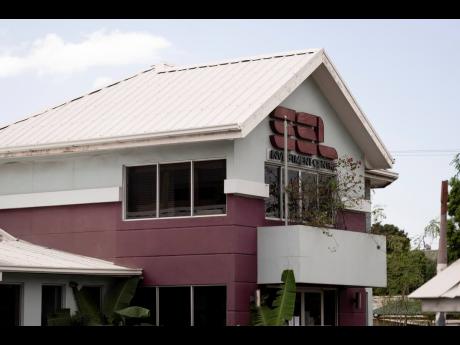SSL’s repo business branded ‘unsafe’ in 2010
“Unsafe and unsound practices” in 2009 forced the Financial Services Commission (FSC) to disrupt the repurchase agreement (repo) business of Stocks...
“Unsafe and unsound practices” in 2009 forced the Financial Services Commission (FSC) to disrupt the repurchase agreement (repo) business of Stocks & Securities Limited (SSL) in 2010 after it noted a $1.3-billion deficit between client liabilities and other similar arrangements and SSL’s matching assets.
Subsequent interim financial statements pushed that shortfall to $1.4 billion, according to documents seen by The Gleaner.
The FSC, in an October 5, 2010, letter to SSL founder and Executive Director Hugh Croskery, directed that the investment firm “immediately cease” accepting new repo liabilities from all customers, whether existing or prospective, except in the case of maturing repo liabilities.
That punitive action, however, like many others over more than a decade of FSC oversight, failed to rein in SSL’s appetite for going rogue in various aspects of its business and was part of the narrative of institutional leniency cultivated at the regulatory agency.
The discrepancies cited in the FSC’s 2010 letter were related to the company’s on-balance sheet liabilities.
A repo is a short-term secured loan where one party sells securities to another and agrees to repurchase those securities later at a higher price.
The FSC said that SSL could have accepted new repo liabilities from the same customer for amounts not exceeding the sum of the maturing repo liability, including the yield on the repo.
“For the avoidance of doubt, it is here stated that the licensee may continue to sell securities to customers via outright sales within transfer of ownership registered where applicable,” the letter said.
The FSC also gave SSL three months to “rectify” any deficiency that existed in relation to the gap in the fair value of repo liabilities and the fair value in corresponding underlying assets or its repo shortfall.
SSL was asked to, within a month, identify the dollar value of the shortfall in repo assets and have it certified by FSC-approved auditors.
The FSC also directed that SSL acquire suitable assets to cover the shortfall or return to customers the funds invested for which a shortfall existed. Monthly reports were also to be submitted on the repo shortfall.
SSL subsequently sold the repo business to JN Fund Managers in July 2013.
The investment firm was also instructed to submit weekly reports to the FSC detailing its cash flow, liquidity gap, and match report.
The letter was signed by then FSC Executive Director Rohan Barnett under the Emil George-led board.
But SSL continued to exhibit flagrant problems and was, in 2013, instructed to, among other things, “refrain from soliciting business from members of the public”.
In 2017, the FSC, in its report, labelled SSL a “problem institution” with a “culture of non-compliance and mismanagement of client funds” and wielded the possibility of suspending the company’s securities licence.
The state regulator’s 2019 report ultimately concluded that there were serious concerns regarding the adequacy of securities to cover clients’ obligations as well as the magnitude of operational risk faced by SSL because of poor record-keeping.
It noted, as well, the seeming inadequacies of management oversight of the operations of the investment firm.
The report said that the lack of up-to-date and comprehensive policies and procedures to guide daily operations seemed to have a negative impact on daily operations.
The FSC last month confirmed that SSL’s licence was never suspended because it saw no grounds for that action as SSL often complied with directives given.
SSL is now at the centre of an approximately $3-billion fraud, which has impacted dozens of client accounts, including retired track legend Usain Bolt’s.
Bolt’s account is said to have been defrauded of US$12.7 million between 2012 and 2017.
The scandal-scarred company has, since early January, been under the temporary management of the FSC, whose Executive Director Everton McFarlane resigned on January 19 amid the unfolding scandal.
The FSC faced public pressure as the state regulator of non-deposit-taking institutions when details of the fraud began to emerge.
McFarlane, whose resignation took effect on January 31, is to receive three months’ salary as part of his compensation package.
Minister of Finance Dr Nigel Clarke made the disclosure in a statement on Monday that was posted on his Twitter page.
Clarke said McFarlane was employed to the regulatory body on a 36-month, fixed-term contract that included negotiated increases.
He was earning a salary of approximately $16 million per annum, among other benefits, inclusive of a 25 per cent taxable gratuity instead of pension, and housing allowance of approximately $1.3 million per annum.
Clarke said McFarlane is to receive three months’ pay – basic salary, housing allowance and outstanding gratuity – in lieu of notice as set out in the termination provisions of his employment contract.
He will also be allowed to purchase his assigned motor vehicle under the terms of the Government’s revised comprehensive motor vehicle policy for the public sector.
McFarlane waived his right to payments for accrued vacation leave, Clarke said.

